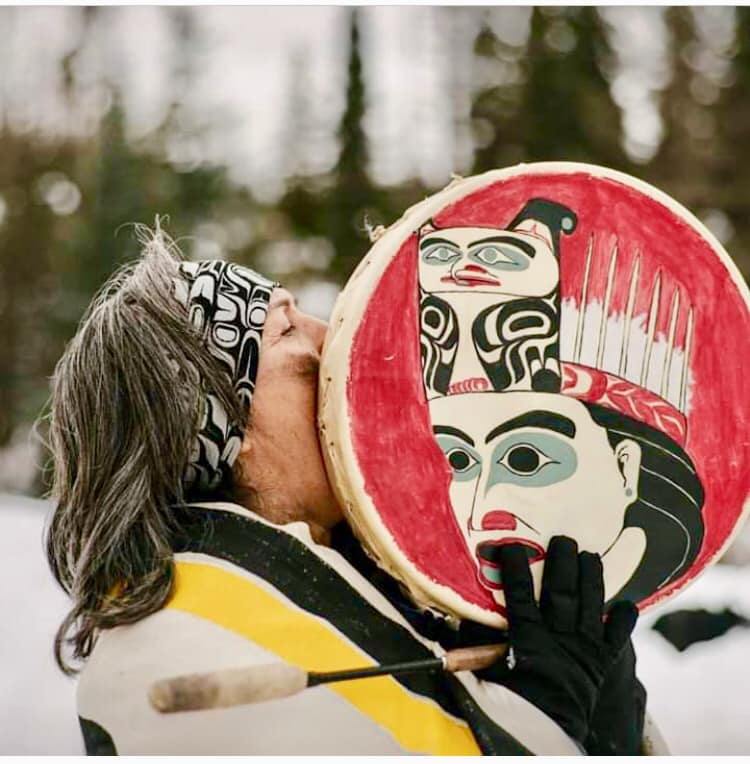As Canadians are being told to stay at home to stop the spread of COVID-19, Coastal Gaslink continues work as usual on Wet’suwet’en territory.
Royal Canadian Mounted Police continue to be flown in from across the province to escort pipeline workers onto unceded lands, pipelines are being stockpiled, and the pipeline right of way is being cleared on Unist’ot’en, Gidimt’en and Lihkts’amisyu territories.
The Canadian Province of British Columbia has shut down large gatherings and declared a state of emergency, but Coastal Gaslink keeps bringing in large numbers of workers onto indigenous territory. Wet’suwet’en homesites and healing centers are on lock down and regular clan meetings, to discuss rights and title within the communities, have all been postponed. Meanwhile, Canadian Mounted Police are putting their workers and the remote communities of Wet’suwet’en at risk. Indigenous communites are already at increased risk from the COVID-19 pandemic due to a lack of adequate health care and housing infrastructure, but RCMP and Coastal Gaslink have no regard for their health and safety.
Recent developments only add to on-going tensions between the Unist’ot’en, local authorities and Coastal Gaslink. Hereditary chiefs of Wet’suwet’en have been fighting this pipeline for many years after the proposal for its construction. The hereditary chiefs, along with Unist’ot’en camp supporters, object to the pipeline on the grounds that it could contaminate land that is a part of who they are and that they rely on to harvest food and medicines and draw water. And while Canada claims jurisdiction over that land, it remains under de facto Indigenous control. Like many First Nations in Canada, the Wet’su’wet’en never signed away their land rights by treaty. Despite that fact, a Canadian court ruled in 2018 that neither the Wet’suwet’en nor anyone else could impede the pipeline’s construction, which meant a massive blow to the Wet’suwet’en and their unceded lands.
In January of this year, premier of British Colombia John Horgan said that the fracked pipeline project had all the necessary permits to start construction, but there’s one important permit missing, which is the key authorization from the Environmental Assessment Office (EAO).
“If the EAO [Environmental Assessment Office] follows the law, they won’t have authorization to proceed from the EAO for many months,” said Slade, an environmental consultant for the Unist’ot’en clan, one of five clans in the Wet’suwet’en Nation. “There’s no need for the police to go in and arrest everyone. The EAO authorization to proceed in this area doesn’t exist.”
Waiting for the environmental report could stall CGL for another couple of months, so Royal Candian Mounted Police decided to start constructions nonetheless, without the permit from the EAO. In the meantime, 80 people got arrested and forcibly removed for trying to stop construction workers from coming in, which caused an international outcry for support.

